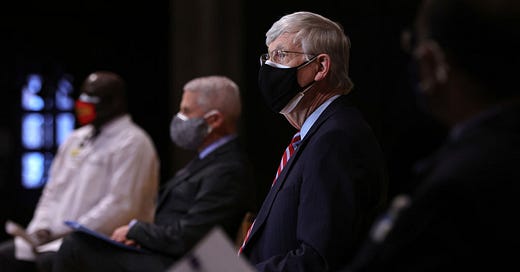New Information Confirms Fauci and NIH Misled the Public on Lab Leak Theory
…to no one’s surprise.
Turns out that the possibility of COVID originating from a lab leak was not a conspiracy theory after all.
“Experts” dictated many inexcusable and destructive protocols during the pandemic, from pushing ineffective mask mandates to promoting lockdowns and school closures.
But one of their most sinister actions was the almost immediate attempt to shut down…
Keep reading with a 7-day free trial
Subscribe to Unmasked to keep reading this post and get 7 days of free access to the full post archives.




